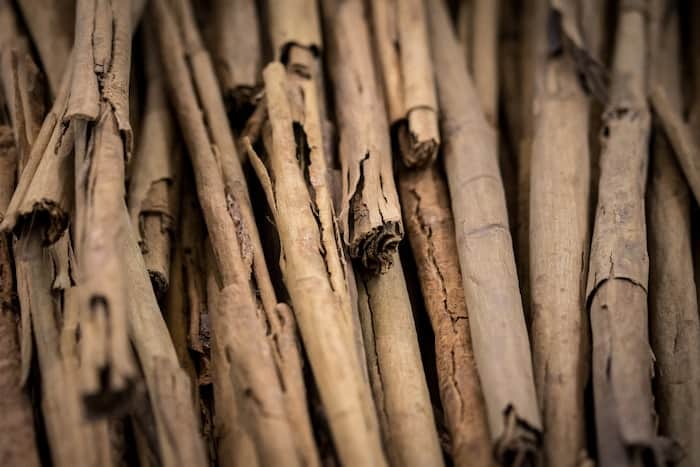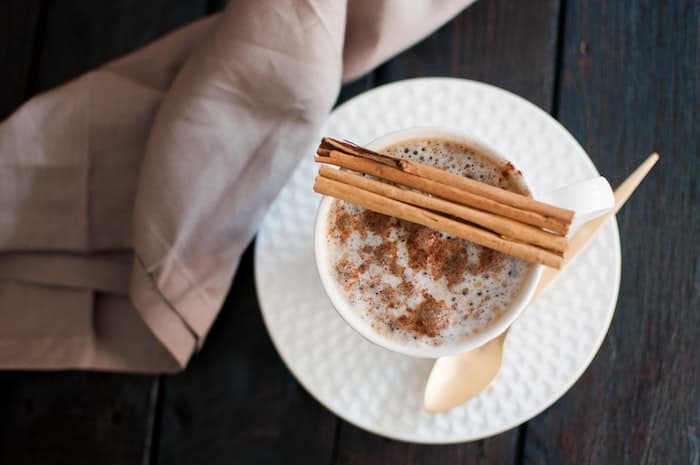When winter holidays kick in, the aroma of cinnamon fills the air. You can smell it in pretty much everything, from spice cakes to mulled wine, and yes, even beef stew. The mere scent of cinnamon alone can instantly conjure images of snowy days, cozy nights spent in front of a blazing fire, and festive gatherings with family and friends.

With all these warm memories associated with this “warm” spice, it is hard to imagine people who don’t like it. But if you happen to be one of them, you might find yourself wondering if something is wrong with you. You might even ask yourself this one big question: why do I hate cinnamon?
It is not so hard to believe that some people do hate cinnamon. They hate its smell and its taste. They also find it a mystery why there are people who love chewing cinnamon gum. And for some, cinnamon is a spice from hell, something they won’t ever get near of if they get the chance.
To finally put an end to your questions, here are some possible reasons why you hate cinnamon:
Cinnamon is Only Used in the Kitchen to Hide a Failed Dessert or Dish
Those who love adding cinnamon to their desserts or dishes are the ones who already know too well that they don’t have luck in the kitchen and their creations will be far from enticing. Cinnamon is only their desperate solution to conceal the bad taste of their dishes and desserts and how they failed to come up with something palatable.

It’s Downright Disgusting
Yes, you’ve read that right. You probably hate cinnamon because you find the spice objectively disgusting. The taste is just awful in an almost inexplicable way that is hard to put into words.
It’s Only Bark Anyway
If you come to think of it, cinnamon is just plain bark. Of course, tree bark is far from being appetizing to the eyes, which only adds more reason to why you might hate cinnamon in the first place.
It May Be Poisonous
The cinnamon that you eat might be poisonous because you don’t even eat real cinnamon but cassia instead. These two both have coumarin that can lead to liver damage when you consume too much of it. The thing here is that cassia contains up to 63 times more coumarin compared to cinnamon, making things even more dangerous for you.
It Overpowers the Taste of Everything Else
Even adding the smallest pinch of cinnamon to water can make it almost undrinkable. The taste can get too strong and overpowering, not to mention the smell.
The Egyptians Used Cinnamon for Embalming the Dead
Did you know that Egyptians used cinnamon to embalm the dead? Of course, they mixed it with other products, but you get the idea. So, the next time someone serves you cinnamon, you probably will think of it as an embalming fluid. Now, that doesn’t seem too enticing, does it?

Alternatives for Cinnamon
Now that you have learned the possible reasons why you might hate cinnamon, it is time to learn some substitutes you can use in place of it. Hopefully, you will not hate these alternatives, or at least hate them less:
Allspice
Allspice isn’t all the spices, nor is it a combination of several seasonings or spices. Allspice is actually a type of dried berry with a warm, savory, and sweet flavor.
Adding allspice to a spice rack is similar to getting three spices in a single spice, it is because allspice tastes similar to a combination of nutmeg, cloves, and cinnamon. Thus, it makes sense that it is one of the best substitutes for cinnamon.
You can easily find this flavoring in the market, and it comes as whole dried berries or in ground form.
Cardamom
Popularly considered one of the world’s most expensive spices, cardamon is a great flavoring that you can use as a replacement for cinnamon in specific dishes. Cardamoms have a peppery, minty, eucalyptus flavor with an herbal warmth fragrance.
Unlike other alternatives listed here, cardamom’s flavor doesn’t resemble cinnamon at all. But it does have the warmth and aroma that cinnamon has.
The spice is a great flavor enhancer in sweet treats and curries. It is also available in black and green pods, with the green ones being a better cinnamon substitute.
Cloves
Cloves are subtly sweet-flavored and robustly aromatic spices that can pair well with other spices such as nutmeg and allspice and can also serve as a replacement for cinnamon. These are known for having an astringency and slight hint of bitterness that can counterbalance sweetness and warmth.
But if you plan to use cloves in place of cinnamon, don’t forget to remove them before you serve the dish because even one bite can completely alter how the dish tastes. All you have to do is extract its flavor but biting it can make the aftertaste linger for a long time in your mouth.
Ginger
Available in ground or dried form or as fresh rhizomes, ginger is yet another go-to substitute that is usually used in place of cinnamon. Fresh ginger is somewhat sweet and peppery with a spicy and intense aroma.
However, ground ginger doesn’t have the same strong flavor as fresh ones but has a warm bite and slight sweetness to it. What makes ginger great is that you can also use it in savory dishes, desserts, curries, and even beverages just like cinnamon.
Nutmeg
Based on its name, nutmeg is a nutty, intense, warm, and somewhat sweet spice with a flavor comparable to that of cinnamon. Thanks to its sweet, warm, and nutty notes, you can add nutmeg to both savory and sweet dishes.
You can also add it to curry dishes that require cinnamon. When you use nutmeg rather than cinnamon, make sure you only use the same amount. You also need to note that nutmeg may have a different and even sharper and more robust flavor than cinnamon.
Don’t worry if you hate cinnamon. There are reasons why you do and you can always find alternatives.







